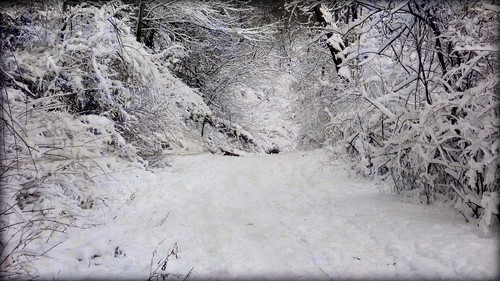We run our website the way we wished the whole internet worked: we provide high quality original content with no ads. We are funded solely by your direct support. Please consider supporting this project.
Did God Cause the Polar Vortex?
When is this polar vortex thing going to end? It’s March, and even in Minnesota we expect to see temperatures warmer than this. With all of the sleet and cold in the south, it seems like schools are closing more than they are open. While this is not a catastrophic event like a hurricane, tsunami, or earthquake, many still ask ask, “Why God?” Or, “God, when are you going to make this end.” And it’s not uncommon for some to say, “Well, the Good Lord knows what he is doing.”
This kind of talk reveals an underlying story that shapes how we commonly see God interacting with nature. It’s the story that God is orchestrating the weather, and one need not be a hard-core Calvinist to think this way. The following is an excerpt from Greg’s Satan and the Problem of Evil where he offers an alternative story about nature and natural evil, one that recognizes that “God is everywhere and at all times present in his creation maximizing good and minimizing evil. But to the extent that he has given creatures say-so, God has restricted the exercise of his own omnipotence” (213). As C. S. Lewis’s wrote in Mere Christianity, “Enemy-occupied territory—that is what the world is.” The following applies such a view to the realm of nature and natural evil.
_________________________________________
“In contrast to moral evil, ‘natural evil,’ says John Hick, ‘is the evil that originates independently of human actions: in disease bacilli, earthquakes, storms, droughts, tornadoes, etc.’ It is, in short, evil that lacks (or at least seems to lack) a moral agent behind it. It’s apparent cause lies within the ‘natural’ order of things” (243).
“Early Christian thinkers assumed that angels, like humans, were created free and given a sphere of influence and responsibility over creation and that, again like humans, angels could use this influence for good, as God intended, or for evil. … ‘Natural’ evil was explained as resulting from these spirits rebelling against God and thus abusing their authority over creation. Hence, for example, Origen argued that famines, scorching winds and pestilence were not ‘natural’ in God’s creation; they were rather the result of fallen angels bringing misery whenever and however they were able. …
“Reflecting the basic vision of the early church, Athenagoras [2nd century church father] concluded that everything in nature that obviously looks contrary to God’s character appears that way because it is contrary to God. It did not arise from the omni-benevolent hand of the Creator … but was due rather to the activity of this evil ‘ruling prince’ and the ‘demons his followers.’
“The view that evil spirits are largely responsible for ‘natural’ evil has been suggested throughout church history by many theologians. But due to the influence of Augustine’s blueprint model of divine providence, this insight was rarely considered the ultimate explanation of ‘natural’ evil, as it was before Augustine. The assumption was that everything Satan and demons do somehow fits into God’s meticulous plan for world history. Because of this, ‘natural’ evil has generally been regarded as a problem of understanding God’s providence, not an issue of spiritual warfare.
“Modern perspectives of ‘natural’ evil have drifted even further from the warfare perspective of Scripture and the postapostolic church. Under the influence of Enlightenment naturalism, rationalism, and biblical criticism, the very notion of evil spirits influencing the physical world became problematic. Physical laws became the ultimate explanation for anything in the physical world” (294-296).
Category: General
Tags: Natural Evil, Nature, Problem of Evil, Spiritual Warfare, Warfare Worldview
Related Reading

A Cross-Centered Evaluation of Responses to Tragedy
I’d like to pick up where I left off on my previous post about Draper’s article entitled “Aurora shooting inspires various perspectives on God and belief.” Toward the end of his article, Draper reports on an informal survey conducted by Stephen Prothero on his CNN Blog. Prothero simply asks people to respond to the question: “Where…

Do You Know of Patients Who Have Benefitted from a Spiritual Warfare Worldview? (podcast)
Greg and Dan talk about spiritual warfare and mental illness. Episode 591 http://traffic.libsyn.com/askgregboyd/Episode_0591.mp3
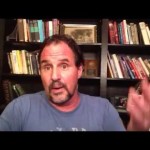
Why God Sometimes “Can’t”
Greg continues his thoughts on sickness and spiritual warfare by addressing the question of why God “can’t” intervene in some circumstances of illness.
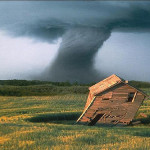
“Natural” Evil? 7 Arguments Implicating Satan
Image by Jmos® via Flickr We believe that God is the Creator of nature, but nature simply does not seem to point to a God of love. Parasites, viruses, bacteria, diseases and cancer kill millions and torment millions more, humans and animals alike. Earthquakes, hurricanes, tsunamis, mudslides and volcanoes do the same. Theists have traditionally argued that…
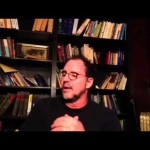
Typhoon Haiyan and “Natural” Evil
Greg recorded his thoughts a few days ago on Typhoon Haiyan and the reality of “natural” evil that’s not really natural at all. “This an enemy has done.” (Matthew 13:28)
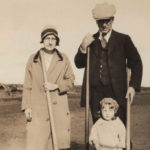
Podcast: Does God Actively Discipline Those He Loves?
Greg on God’s role in suffering. http://traffic.libsyn.com/askgregboyd/Episode_0272.mp3

